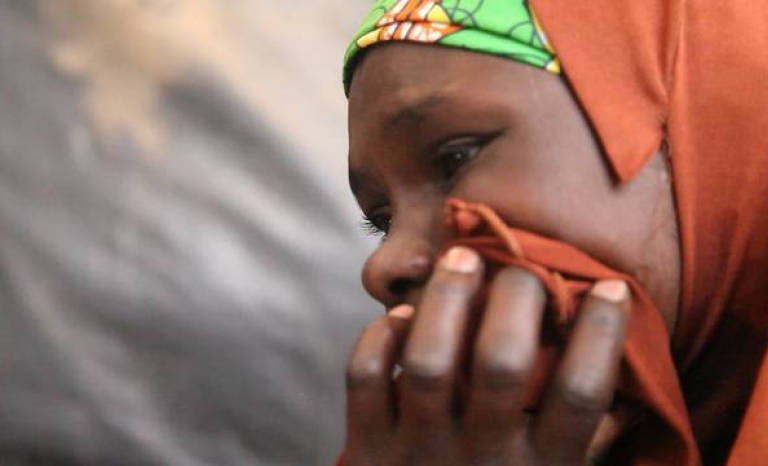
Washington’s $2 billion counterterrorism program
was supposed to enhance security.
It’s had the opposite effect.
Nick Turse / Responsible Statecraft
(May 23, 2022) — The United States has heavily invested in a security partnership with Nigeria over the last 20 years, supplying that country with warplanes, weapons, and training to support its fight against terrorist groups and foster military professionalism among its troops. But a new report finds that despite the assistance, the Nigerian armed forces have not only failed to defeat militants but routinely commit grave human rights abuses in the name of counterterrorism without repercussions from the United States.
From Burkina Faso to Cameroon to Ethiopia, the United States has poured money into allied African militaries that have frequently proven more capable of abusing civilians than protecting them. In each case, accountability mechanisms have been lax and slow to respond to reports of abuses. The report from Brown University’s Center for Human Rights and Humanitarian Studies, the Security Assistance Monitor at the Center for International Policy, and InterAction demonstrates that Nigeria fits the same pattern.
“We know from this and other cases around the world that training in civilian protection and human rights issues isn’t enough to change behavior and prevent abuses if security forces aren’t being held accountable for their actions,” Lauren Woods, the director of the Security Assistance Monitor, told Responsible Statecraft. “Unfortunately, what we see in Nigeria is emblematic of what we see with security assistance and arms sales all over the world.”
Since 2000, the US has provided, facilitated, or approved more than $2 billion in security assistance and military weapons and equipment sales to Nigeria and has conducted more than 41,000 training courses for Nigerian military personnel to support counterterrorism efforts aimed at defeating Boko Haram and the Islamic State’s West Africa Province as well as promoting cooperation on maritime and border security and strengthening military professionalism, according to the report.

Despite two decades spent mentoring the Nigerian armed forces, that military has been regularly implicated in gross human rights violations and crimes under international law, including extrajudicial executions and incommunicado detentions. Between 2011 and 2021, for example, at least 10,000 civilians died in Nigerian military custody after being detained in connection with the Boko Haram insurgency in northeast Nigeria, according to Amnesty International. Last August, Amnesty also reported that at least 115 people in the country’s southeast had been killed by security forces in the previous four months.
The US State Department’s most recent human rights assessment also found credible reports of unlawful and arbitrary killings, forced disappearances, and cruel, inhuman, or degrading treatment or punishment, among many other crimes, by the Nigerian government.
The failure, despite efforts by the US government and Nigerian military leadership, to curtail these rampant human rights violations indicates, says the new report, “that trainings provided by the US and others have been insufficient” and that the United States has demonstrated “apparent limited capacity to shape the conduct of Nigerian security forces, notably on best practices to minimize civilian harm and follow up to allegations of abuse.”

In January 2017, a Nigerian air strike aimed at Boko Haram terrorists left more than 200 civilians dead or wounded. Later that year, the United States agreed to sell Nigeria 12 Super Tucano warplanes, including thousands of bombs and rockets, for $593 million, then the largest US foreign military sale in sub-Saharan Africa. Last month, the US approved a possible $997 million deal for 12 attack helicopters and related training and equipment to Nigeria. This followed revelations that, in April 2021, a Nigerian military helicopter launched indiscriminate attacks on homes, farms and a school in an effort to strike at “bandits.”
The new report reveals that the January 2017 and April 2021 air strikes were not anomalies. Civilian casualties from such attacks have markedly increased in recent years, NGOs told the authors. “There is reportedly a widespread conception across military forces that any civilians who have not come out of the bush are affiliated with [nonstate armed groups],” according to the report. “The military seldom distinguishes between civilians and combatants and fails to take adequate precautions to mitigate civilian harm in anti-insurgent operations.”
While the United States delayed its approval of the almost $1 billion attack helicopter deal due to human rights concerns including civilian deaths during Nigerian counterterrorism operations, experts say that the ultimate endorsement of the sale sends the wrong message. “It’s hard to have an incentive to change behavior without consequences,” said Woods, one of the authors of the new report. “You can offer all the civilian protection and human rights training in the world, but without meaningful consequences for abuses, something the government cares about, it’s hard to get a different result other than continued abuses.”
For its part, the United States — from Afghanistan, Iraq, and Libya to Somalia, Syria and Yemen — has its own longstanding issues with civilian harm and failures of accountability. The Pentagon recently declared, for example, that a 2019 airstrike in Syria that the New York Times. determined killed up to 64 noncombatants, including women and children, and was obscured through a multilayered coverup did not violate the laws of war or warrant disciplinary action.
The $1 billion purchase of 12 attack helicopters would provide Nigeria with a significant upgrade in aerial firepower but experts say that it’s unlikely to significantly alter the balance of power in the country’s long fight with militants and more likely to lead to additional civilian harm.
“This is an enormous arms deal. And it comes after years of weapons flowing into Nigeria from the United States, apparently without any mechanism to slow or stop the flow if the Nigerian government cannot hold its armed forces accountable for abuses,” said Woods. “It’s as though we still believe that new and better weapons will finally address this growing insecurity.”
Posted in accordance with Title 17, Section 107, US Code, for noncommercial, educational purposes.